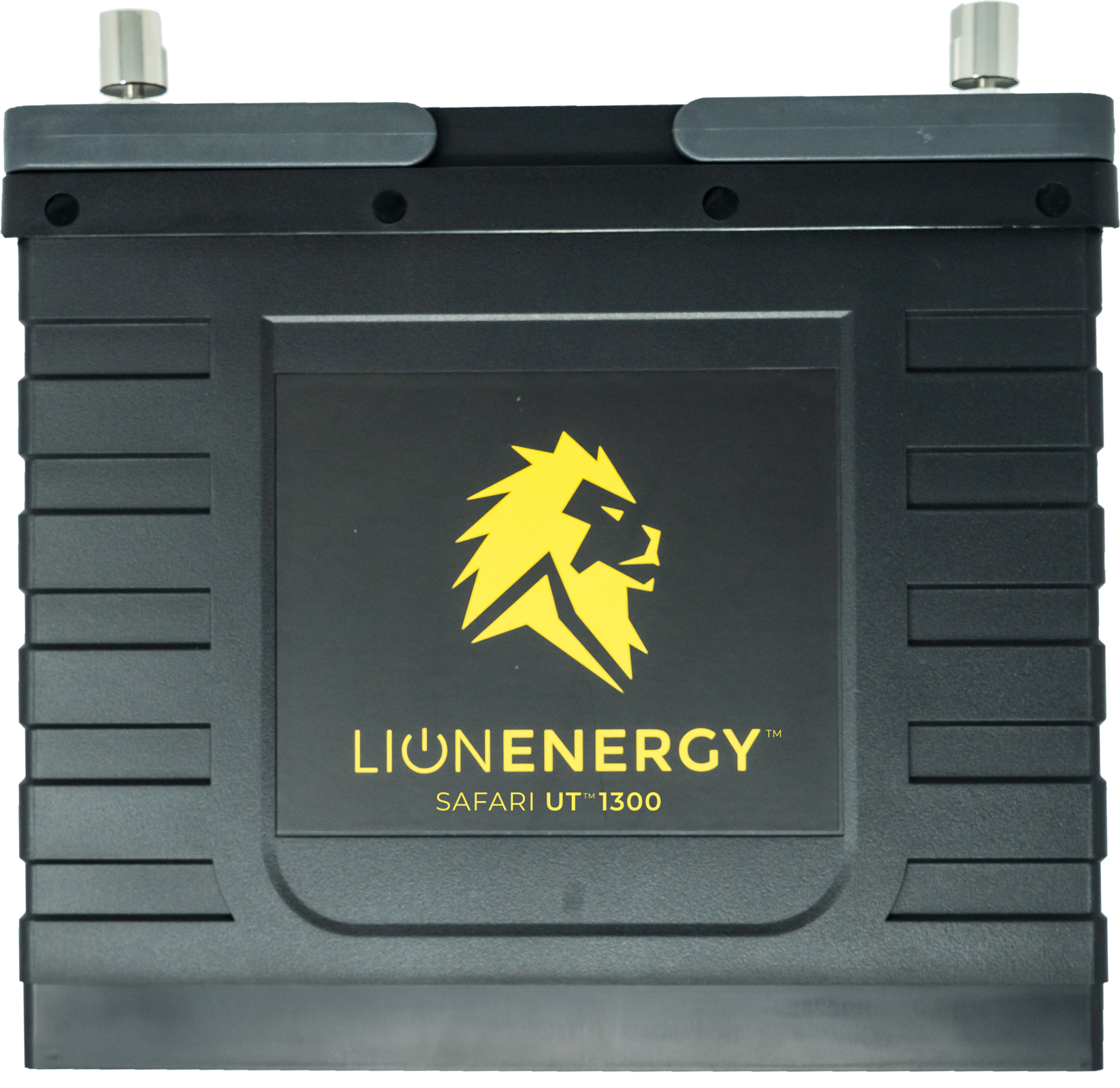We know your type - you’re the kind of person who looks for the best solutions available. Solutions that fix your problems, that are ready when you need them, and that take your health and the health of the planet seriously. You’re someone who cares about what belongs in your life and what doesn’t.
That’s why you’re here. You need the best power solution out there. And we’re here to help you find that solution.
Since you’re looking for that extra boost of power (whether it’s for home or on the road) you’ve probably realized that a lot of people use gas-based generators. And that does work for some people.
But you’re here, looking at other options, and that can only mean one thing - you aren’t sure that gas-based generators really are the best option for you. And you may be right. Because there is another option, and it’s becoming more and more popular too: the lithium-ion battery based generators.
So which is the best solution for you? Let’s compare the two so you can be sure you have the best option.
Why People Still Use Gas-based Generators
First, let’s talk about why gas-based generators are still pretty common. The fact is, gas-based generators do work. They give people the power they need to back-up their homes, run their RVs, and so on. And, despite any inconveniences that gas-based generators have, they’ve remained a pretty stalwart contender in the power game.
While it’s hard to know every reason people choose gas-based generators over any other option, we’ve come up with a few possibilities:
- People don’t know that there are other options.
Let’s be honest here. People are more likely to buy the products they’re familiar with than they are to search out other options. Especially if that product seems to have a good track record. So the challenge for other, and potentially better, options is becoming known enough that people will trust them.
So just because you haven’t heard of another option doesn’t mean it isn’t better. It may just be less-known.
- People don’t trust other solutions to work better.
In other words, if it ain’t broke, don’t fix it. People who have gas-based generators may think it isn’t worth trying another option if the option they have is working, even with a few drawbacks. What’s the point, they ask, of looking for a better solution when I already have a good one? That’s sort of like someone saying, “Why should I get a cell phone when my land line works just fine.” Time to step into the modern world!
- People don’t realize the environmental and health risks that could come from gas-based generators.
Gas-based generators do work well, for the most part. But people might not know the potential risks of using gas. If used right, the generators should be safe enough, but there’s always the possibility of fire, not to mention the effect of the fumes on the environment. And you can’t use them indoors because of the toxic fumes they produce.
Some gas-based generators have switched to natural gas for power, which has some benefits, but it doesn’t change the overall risks of gas.
While these are only a few reasons people might opt for gas-based generators over other options, there are likely other reasons as well. Companies are working all the time to improve gas-based generators, and that includes making them safer. Again, gas-based generators do work, and they aren’t necessarily a bad option but are they the best option?
The Problems with Gas-based Generators
Even though gas-based generators are pretty common and functional, they do have their downsides. Let’s take a look at a few:
Not Environmentally Friendly
Okay, so we already touched on this one. The use of gas can be pretty harmful to the environment for a couple of reasons. When gas is burned, it creates fumes that leave pollution in the air. That’s damaging to the earth and to our bodies. And you can’t uses these indoors.
But it isn’t just the fumes that are a problem. Fuel is a limited resource, especially natural gas. The more gas we use, the less we have in the future. It isn’t renewable. People are increasingly concerned that the earth’s natural gas reserves will be sapped too quickly if we don’t start making changes. And yes, even little things like gas-based generators contribute to the problem. In larger emergencies like tornados or hurricanes, it’s hard to find available gas for your generator.
Potentially Dangerous
We already brushed past this one earlier as well, but it deserves a little more explanation. Gas is a flammable substance. In fact, its flammability is the reason it’s used in generators. Igniting the fuel creates energy that can be channeled into electricity. But if there were ever a malfunction or accident, the gas in the generator could all ignite at once, resulting in a dangerous fire or even an explosion.
That might not be too common, but it’s a risk worth knowing. But another risk might be more concerning.
When a gas-based generator runs, it releases fumes into the air. Aside from hurting the environment, these fumes can also endanger the people around them. See, the fumes contain carbon monoxide - an invisible gas that you can’t smell or taste, but that can kill you if you inhale too much of it.
Carbon monoxide shouldn’t be too much of an issue with a gas-based generator if you make sure to never use it inside your home and to keep it in a well-ventilated area. But again, it’s an important risk to be aware of.
Inconvenient
Gas-based generators, though very functional and useful in their own right, can also be pretty inconvenient. For example, they require a lot of maintenance. You can’t just set up a gas-based generator and never give it a second thought, especially because those risks we were just talking about become much more likely if the generator isn’t properly cared for.
.You also have to make sure that you have fuel on hand at all times. If you don’t, you might just find that your generator isn’t going to help you at the moment you need it most.
Gas-based generators are also notoriously noisy. Sometimes that doesn’t matter too much. If you can store it a distance away from your home, you might not hear the noise. But if you’re camping and have a generator running, that becomes a lot more inconvenient for you and for anyone camping near you. And if you’re camping in a designated area, often there are noise restrictions at night so you can’t use your generator.
Gas-based generators definitely have their downsides to consider. But we know you’re looking for the best option, so let’s take a look at the lithium-ion battery to see if it’s the solution you’re actually looking for.
The Lithium-ion Battery Solution
The first thing you’re probably wondering about the lithium-ion battery is how it could possibly be a competitor with gas-based generators. They’re just giant batteries, aren’t they? If the battery runs out of charge, wouldn’t it be the same as a generator running out of fuel? What’s the big deal about these lithium-ion batteries then?
Well, those are good questions to be thinking about. See, if you don’t have a way to keep the lithium-ion battery charged, then you’re right, there’s not much difference between that and running out of gas for the generator.
But these batteries can compete with gas-based generators so well for three big reasons - solar power, silence and safety.
When you connect one of these batteries to a solar panel, you can have long-term electric energy for as long as you want. And the best lithium-ion batteries hold a lot of charge that doesn’t get sapped too quickly, so solar power is a good option for these batteries. The batteries essentially become solar-powered generators, converting the energy of the sun to usable energy in the battery.
Though the batteries require charging, they have a lot of features that help them compete with gas-based generators. We’ll dig into those in the next section.
Is a Lithium-ion Battery Really Worth It?
So, a battery that charges on solar power. Cool, but you might not be sold on it just yet. Don’t worry, there’s a lot more to these batteries than solar power.
Easily Portable
Most lithium-ion batteries are made to be portable power sources so you can easily take them on the road or move them around your house and safely use them indoors. Some are even small enough to fit in a purse or glove compartment.
Lower Utility Bills
If you’re looking to cut long-term costs around your home, lithium-ion batteries can power all sorts of appliances and devices. And since the energy comes from the sun and the battery, not your house, it helps drop the bills.
Environmentally Friendly
A battery that uses solar power can really help the environment. It eliminates the need to use limited resources and doesn’t release harmful pollution in the air. And because lithium-ion batteries can be recharged over and over for years, they minimize the waste going to landfills.
Silent and Simple
Batteries generally don’t make noise, and that holds true for lithium-ion batteries. That makes them an ideal power source for camping or tailgating. Lithium-ion batteries also don’t require maintenance aside from regular charging, which makes them very convenient. Lithium-ion batteries do tend to cost more upfront than a gas-based generator, but without the need for fuel or maintenance, the overall cost ends up lower.
Lithium-ion batteries are a great power source for a lot of people, but they do have some limitations. For example, while they can power a wide range of things from a cell phone to an RV, they can power your entire house but you need a lot of capacity to do so. But these batteries do measure up well against gas-based generators.
Easy Comparison: Gas-based Generators vs. Lithium-ion Batteries
Both gas-based generators and lithium-ion batteries have great uses, but it’s important to choose the one that will help you most. The table below can help you make that decision quickly and easily.
If you decide that a lithium-ion battery would be a good fit for you, check out these top-quality options from Lion Energy before they sell out. We hope you find the best solution for your power needs.
|
Gas-based Generators |
Lithium-ion Generators |
|
|
Portable |
✓ |
✓ |
|
Power large appliances and small devices |
✓ |
✓ |
|
Environmentally Friendly |
✓ |
|
|
Safe for Indoor Use |
✓ |
|
|
Safe for Outdoor Use |
✓ |
✓ |
|
No Maintenance |
✓ |
|
|
No Fuel |
✓ |
|
|
Silent |
✓ |
If you want to go Lithium, check out Lion Energy at www.lionenergy.com


Share:
Stay Connected to Your Family and Friends, Not the Grid
Stay Connected to Your Family and Friends, Not the Grid